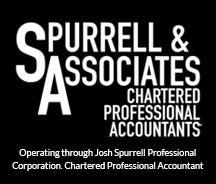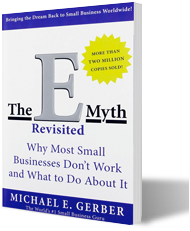Part-time CFO | Fraud Risks In Small Business
Business owners who only have one person in charge of their accounting and finances often find out the hard way why that is a bad idea says part-time CFO. Many business owners are not aware of the significant fraud risks that exist within their own company. Therefore they do not know the ways to demise those risks, putting their business into harms way unknowingly. Helping business owners see where fraud risks exist in their business, can help business owners to eliminate those risks themselves, so that they can focus on the truly important tasks, which is on operating their business.
Many business owners do not realize why only having one person working on their accounting and finances is a bad idea. The reason why this is a bad idea says part-time CFO is because there is no will double check system built in. Even if business owners do not have dishonest employees that will be looking for reasons and ways to steal money, not having double check system means that business owners also have no way of catching mistakes until that itís too late, protecting that employee accused of theft. By ensuring that all financial tasks have two people on them, can protect the business from fraud, protect the business and employee from mistakes, and can protect the employee from accusations of fraud. Because of all these amazing reasons, there is no reason why business owners should avoid implementing this. If business owners are worried about the cost of it, they should consider what is the higher cost, employee wages, or thousands of dollars of theft over several years.
Business owners may not realize that there is a risk with Employees who are in charge of accounts payable, since they only have the power to make payments to authorized accounts. However, says part time CFO there are several ways that account payable employees can defraud the company. The most common way is when the staff members use demi-corporations. The way they do this is by creating a payment in the system to a corporation. The only catch is the Corporation doesnít exists, and the business owner takes the check and cash as it. When the business owner reviews the payments, they see a charge that doesnít make sense, but itís going to what appears to be a legitimate corporation and they donít question it. Business owners can eliminate this risk simply by having two people work on accounts payable, or by using an outsourcing company to manage the payables. Another way that business owners can minimize this risk says part-time CFO is by using electronic fund processors. Business owners can set a schedule on how often payments are going to come out, and all the payments that will come up for that period Will go through that electronic fund processor. This eliminates the amount of transactions that are coming out of the businesses bank account, making the payments that do come out easy to see and easy to track.
Many business owners do not know what they do not know when it comes to fraud risk within their own business says part-time CFO. They believe that their employees would never be dishonest, and they donít see anything immediately remiss so they believe they are not at risk. Unfortunately this is not the case, and many businesses have been put out of business by fraudulent activity from staff members. This isnít to say that every staff member in charge of sensitive financial information are dishonest, but there is no reason a business owner shouldnít minimize all risks wherever they can. Hereís how business owners can minimize fraud risks within their own business quickly and easily.
When companies run payroll within their own business, they can do several things to minimize the risks of being defrauded. The number one Common Way that companies are defrauded at payroll, is when the person running payroll inflates the number of hours they worked. By inflating the number of hours they worked says part-time CFO, they increase the amount of money they didnít get paid. Employees may also increase the wage they get per hour in order to get paid more. Employees who are trying to get away with it will not make those increased wages or hours very conspicuous, it will only increase its by a little bit each payroll. Many employees often donít even consider this theft, they consider that additional money as money their ìowes themî for a variety of different reasons. When this happens consistently over several years, the amount of money that an employee is able to steal is astronomical. Businesses have had tens of thousands and hundreds of thousands of dollars stolen over several years.
The next most common way that businesses get defrauded through payroll is when employees use pay will remittances to defraud the company. How they will achieve this says part time CFO is after they calculates the source deductions that need to be paid to the CRA, they will add additional funds on and have put additional money go on to their name. Therefore it looks as though that employee is paying significantly more in remittances. When it comes to tax time, CRA will see that it looks like that employee has paid significantly more in payroll deductions than is necessary, and will issue a refund check. Unfortunately for the business owner says part-time CFO, this check does not go back to the business but it goes directly to the employee. They cash the check and have effectively stolen from the company. This is exceptionally hard for business owners to catch because all they see when they look at the payment to CRA is the lump sum payment for all the employees. Without actually calculating the entire source deductions for each person and adding them up, thereís no way a business owner can catch this. Unless of course they outsourced payroll, or ensure that two people are working on payroll at the same time.

